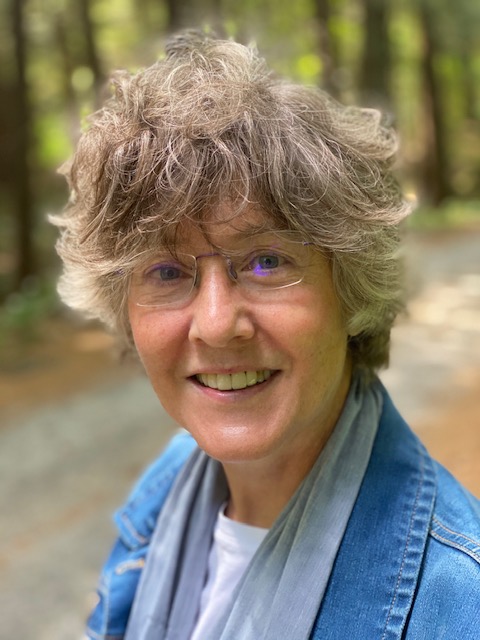Andrea Fry, whose poem “No Place of Sorrow” appears in SRPR Issue 46.1, reflects on poetry as a site of complex psychic geography.
When I was eight, I flew for the first time in an airplane and discovered the inflight magazine with its laminated world map depicting the airline’s flights. It was a schematic of ascending and descending arcs linking departure cities to wildly different destinations—semicircles that connected Timbuktu to London, Hartford to Bangor, Easter Island to Houston.
In thinking about that map now, it reminds me of the creative process and the exhilaration I feel when disparate thoughts, memories, and emotions are connected in a poem through words and language. And through the linking of these separate—often personal—ideas, something new is created that catapults personal experience into the universal.
At the time that I was writing “No Place of Sorrow,” I was preoccupied with certain private images, stories, and thoughts, none of which were related other than my shared psyche as their provenance. They were personal references, family lore and skeletons, images that simply tickled me or inspired longing.
Some stories were lovely. My Kansas-born uncle, on behalf of my future aunt’s father (a hardscrabble farmer) carried a sack of turnips from Protection, Kansas to New York City. He delivered them to the young woman who had left Protection and moved to the big city to become an actress. Another recurring image was a grave that had been draped with a string of purple neon lights—not everyone’s idea of homage, but a show of sincerity and passion.
Other memories were painful. My mother’s eyes were bruised as she appealed to a televangelist for a miracle. And there was the goofy bowerbird—absorbed and delighted in his single-minded scheme to win a mate—whose dance played over and over in my mind.
While each thought is different in subject and tone, they all share a poignance and embody faith. Independently, each image holds only limited power. They need to be connected, to dwell together within the structure of a poem before they can earn a voice, before they can speak universally. Poetry uses arcs of words and language to tie together seemingly different ideas via a rounded trajectory like the flight pattern of a bird.
Going back to that flight map, a single city might be a metaphor for our own personal mooring—that which is familiar to us, born of our own background and experience. And because no two backgrounds or experiences are the same, that single city is unique in what it harbors. But for the same reason, that single city is limited if it remains unconnected to other cities outside its own personal geography, never launches beyond its borders.
The arc that connects the departure city to the arrival city is the poem itself, the flight of imagination that links unlikely things. Our world contains both Easter Island—a mysterious volcanic land mass with stone monoliths—and Houston, capital of petroleum and the electric chair. It is a world where a beaten woman may not be defeated by despair, even if the object of her hope is suspect. Whether beautiful or hideous, thrilling or disturbing, poetry makes connections that open our eyes to possibility in the impossible.

Andrea L. Fry was born in Dallas, raised mainly in New York City and the Catskill Mountains, and educated at Union College and Columbia University. She published her first collection of poems, The Bottle Diggers, in May 2017 (Turning Point Press). Her second collection Poisons & Antidotes follows in August 2021 (Deerbrook Editions). She has been nominated twice for the Pushcart Prize. She was a finalist in Georgia College’s Arts & Letters Prize contest, a semi-finalist in the Gulf Coast Prize in Poetry, and a semi-finalist in River Styx International Poetry Contest. Her poems have or will appear in Alaska Quarterly Review, Annals of Internal Medicine, Barrow Street, Chiron Review, Cimarron Review, The Comstock Review, The Lake, Spoon River Poetry Review, Stanford Literary Review, St. Petersburg Review, Writers Resist and others. Andrea is an oncology nurse practitioner at Memorial Sloan Kettering Cancer Center.
You can order a physical copy of 46.1 on our website, or purchase a 2-year subscription.
And if you want to keep up with us on social media, you can follow us across
Instagram: @srpr_news
Twitter: @srpr_news
Facebook: SRPR (Spoon River Poetry Review)
